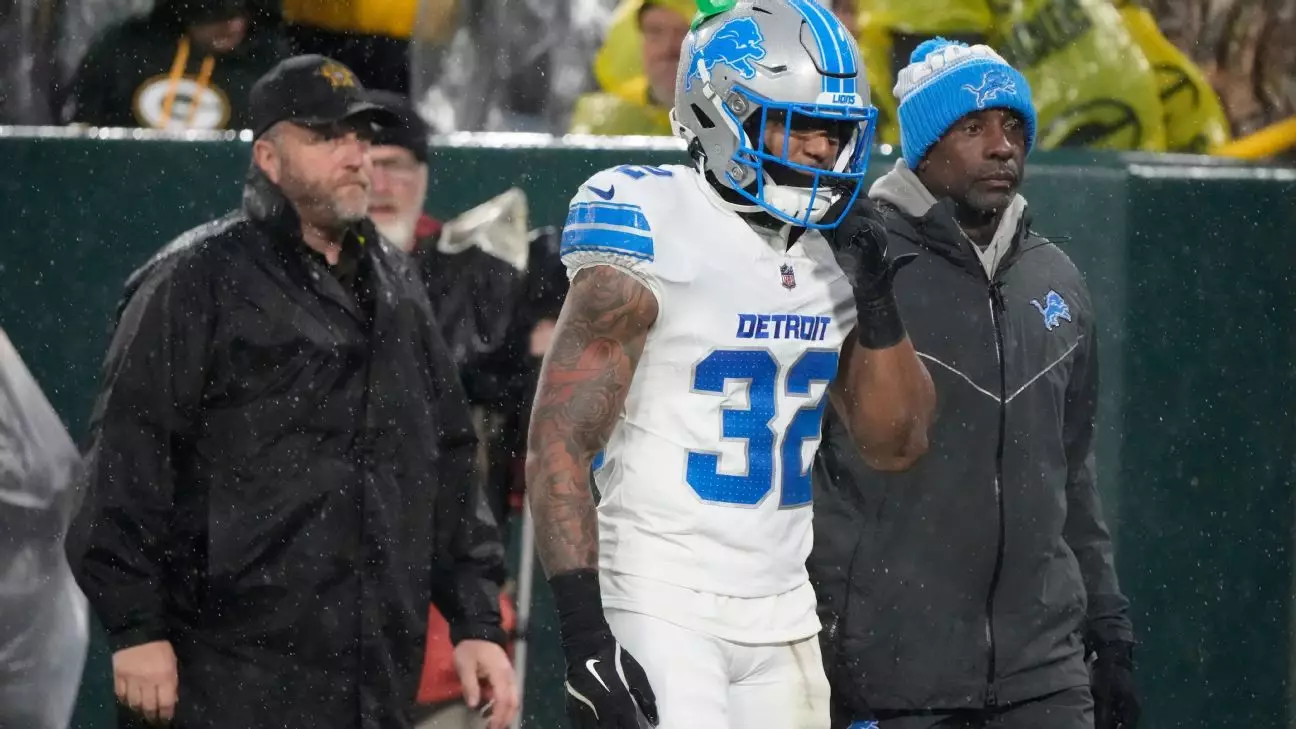As the season progresses for the Detroit Lions, moments of intensity on and off the field underscore the importance of accountability and the pressures athletes face. A recent incident during a game against the Green Bay Packers highlighted not only the fierceness of the competition but also the essential growth areas for the players involved. Defensive back Brian Branch’s ejection for a late hit has become a focal point of discussion, particularly concerning his emotional response in a high-stakes environment.
Brian Branch’s ejection came at a pivotal moment in the game, with the Lions holding a slender lead over the Packers. The emotion of the sport can often lead to split-second decisions that carry significant consequences, as was the case when Branch delivered a late hit on Packers receiver Bo Melton. The immediate repercussions—losing a player mid-game—are compounded by the emotional response that followed. His gesture towards the crowd, signaling frustration, became a regrettable moment that he later acknowledged as irresponsible.
In a sport that prizes toughness, such incidents can overshadow an athlete’s contributions on the field. The response from Branch post-ejection, where he admitted to his poor choice and described it as a „heat of the moment“ reaction, demonstrates a level of maturity and self-awareness. By publicly apologizing and recognizing the importance of maintaining composure, Branch sets a standard not just for himself, but for his peers navigating similar pressures.
Lions defensive assistant Jim O’Neil’s reaction to the incident also reflects an essential aspect of team dynamics: the educational balance between coaching and discipline. O’Neil’s acknowledgment that it was difficult to derive a teaching moment from such a heated exchange speaks to the unpredictable nature of sports. While the immediate focus was on correcting Branch’s targeting technique, the broader lesson revolves around emotional intelligence and decision-making. The incident catalyzes dialogue on how to effectively manage high-pressure moments, preventing frustration from leading to actions that could harm both the player and the team’s overall dynamics.
The coaching staff’s responsibility does not only lie in tactical instruction but also in fostering an environment where players learn to channel their competitiveness into positive actions. The challenge for the Lions coaching staff is to equip their players with the tools to face these mounting pressures—an endeavor that requires consistent reinforcement of core values in both practice and gameplay.
Similarly, another narrative intertwining with the Lions‘ growth is that of Jameson Williams, who has recently rejoined the team after serving a suspension for violating the NFL’s performance-enhancing substances policy. Coach Dan Campbell’s readiness to reintegrate Williams signifies a clear message: embracing second chances is vital for individual and collective growth. Williams’ acknowledgment of the support he received during his challenging times, coupled with his understanding of the need to improve both on and off the field, underscores a pivotal moment in his career.
The juxtaposition of Branch’s emotions and Williams’ redemption highlights the multifaceted realities that players navigate. Williams reflected on the importance of moving forward with intelligence and humility, recognizing that his past actions warrant deeper introspection and responsibility. In a competitive sport marked by fierce rivalries and high expectations, this self-awareness is crucial—not just for personal success but for the cohesion of the entire team.
As the Lions strive to forge a competitive identity, the issues surrounding Branch and Williams serve as essential learning experiences. A commitment to accountability and personal growth is vital not just for individuals but for building a resilient team culture. The lessons drawn from both players’ experiences can contribute to a more cohesive approach to challenges on the field.
The challenges faced by athletes such as Brian Branch and Jameson Williams are emblematic of the high stakes in professional sports. With an environment that fosters support, reflection, and growth, the Detroit Lions have the potential to emerge stronger, both as individual athletes and as a unified team. The road ahead may be fraught with challenges, but embracing accountability and learning from mistakes can pave the way for eventual success.


Napsat komentář